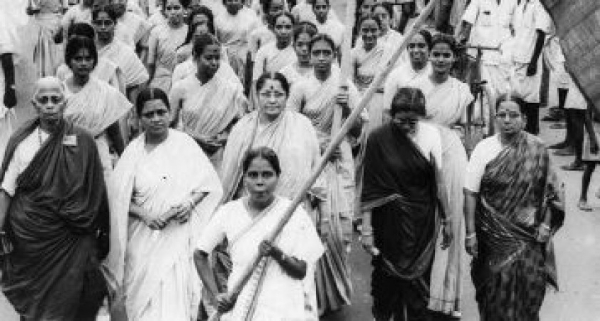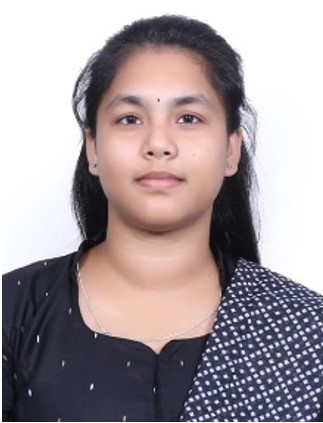Invest on comprehending freedom & equality on International Women’s Day 2024
In 2024, calling for investing on women to progress together, although requisite, it is soulless. The question arises who is investing? And for whom?
Total Views |
“Were Wisdom always with us, how should we live among the sons of men!”, writes Cornelia Sorabji, in Between the Twilights, in discussing the celebrations of Saraswati, Goddess of Wisdom. Saraswati is honoured as a guest in the house for two days. The narrative ends with a note on the image of the Goddess being set afloat on the river and the altar remaining empty for the rest of the year. She comments that although wisdom is desirable, the goddess is invited for just two days. This reflection on the nature of Women’s lives entangled with the men is beyond the applicability of passing time.

A fundamental principle that was promoted by early days of International Women’s Day celebration was equal rights and right to vote, or suffrage. United Nations announced an official theme for each annual celebration since late 1990s ranging from gender equality to prevention of violence against women. For the year 2024, the official theme has been announced as “Invest in Women: Accelerate Progress”. To invest is to commit resources through which one can avail benefits after a time period.
The idea is that if women are provided with access to healthcare and education, then the whole country and society progresses. Mary Wollstonecraft, one of the early proponents of feminism, wrote a treatise, A Vindication to the Rights of Woman, 1792, argued similarly that women require formal and rational education at least for consideration that they are the companions of men and their children. Although, an indispensable argument, the call for equality has grown beyond Wollstonecraft’s argument, decades and centuries later in the global scale, such as fundamental human rights to every human.
In 2024, calling for investing on women to progress together, although requisite, it is soulless. The question arises who is investing? And for whom? Idea of equality rests on the ideas of liberation and freedom. It is a dire necessity, in this fast-paced world, to understand these concepts of freedom in talking about rights of women, whether political or reproductive. The identity of woman, in the contemporary times, have gone beyond the assigned sex at the time of birth. Then, what do equality and empowerment mean? Here, I say, Indian freedom fighters have deliberated on the nature of equal rights and freedom that each must possess for progress and empowerment of all, and further, sustainable future.
We might have often heard, someone in the political speeches of today and yesteryears, claim that India gave its women their freedom and rights since the inception of Independent India. Whether men or women, claiming the above, or the audience nodding to this grand statement must pause, because this claim is tricky.
Definitely, India believed in universal adult franchise and the Indian constitution believe in fundamental rights for all. Yet, there are minimum two issues with this understanding. For one, there was a long legal and political struggle even during the British India, for social reforms such as abolition of child marriage and promotion of girl education. Two, freedom is not to be given but recognised.
On the eve of International Women’s Day 2024, let us revisit some figures of Indian history.
The initial celebrations of women’s day in Europe and North America can be traced to early 1900s. During that same period, one of the contradictory figures on the British India and a social reformer, Cornelia Sorabji—one of the earliest graduates and female advocates—published an account of her visits to the zenana, an area for purdahnashins, women of the households, especially in the Northern India. Claiming that her work is merely women’s account of their lives, she highlights that the Indian women are torn between the modern/ western and the traditional/ Indian ways of living. In the 1900s, the freedom to be achieved was a yearning in the domestic spheres of lives for the women, too.
She tells us the most powerful position a woman achieves in the zenana is when she is a widowed mother of a son. Here, being widow denotes the absence of the husband. Peculiar to the early Indian struggle for Independence, women participants and women rulers, directly fought the British after the death of their husbands. For instance, Rani Laxmi Bai of Jhansi (1800s) and Rani Velunachiyar of Sivagangai (Tamil Nadu; 1700s). Similarly, conception of Bharat Mata in the late 1800s, was a mother, a husband-less mother. However, the queens of Jhansi and Sivagangai, were well-educated and well-trained women, allowing them to, therefore, wage wars against the British and be the inspiration for millions.
More from the Author: "From 'Prasad' to Identity": Celebrating Diversity in the Multilingual nation of Bharat
In the culture of the Indian subcontinent, one of the strongest emotions is love, and love is the loudest towards one’s mother and most fierce in the form of devotion. Similarly, Indians conceived the divine as feminine. God as shakthi, in other words, courage and valour in the hearts of the children. Additionally, patriotism was seen as a service to that divine feminine, Mother India. A service that is immortal. These contexts are important as the vision of the independent India in which we live are designed upon the understanding of these conceptualisations. The designed India which does not see women as unequal to men but rather as different from men.
Through the independence struggle, many social reformers and freedom fighters in the Imperial Legislative Council presented policies for reformation regarding primary and free education, health and rights of women and children. In Unhappy India, Lala Lajpat Rai emphasises that Indian National Movement is inclusive of women and the liberation of India is possible in the near future as women are active political participants. The aspiration for betterment of women, accordingly, is not just in tandem with the global progress but it is seen characteristic of Indian culture. The Constituent Assembly did not add universal franchise and fundamental rights or even, Directive Principles to follow the trends of political progress. The rights and equality were realised through the long struggle for independence and it was embedded in envisioning the independent India.
Similar to the question of investment, whose is the freedom to give? Philosophers of Indian freedom struggle have a compelling answer. Swaraj is my birthright! Therefore, the question is never who gives the freedom to women or any subjugated population. But rather, the celebration is the recognition of freedom within us.
The Indian Struggle for independence has taught the world the lesson that liberty and freedom is recognised within oneself. It is important to understand that rights and independence is inherent in us and thus, no one, can snatch it. Through the freedom struggle, swaraj took the meanings of freedom and self-rule. According to Mahatma Gandhi, swaraj means achieving freedom, but it has to be achieved individually. Everyone must learn to rule oneself. For Rabindranath Tagore, Freedom is not isolation but a balanced interdependence between the self and the others. Similar to the Sanskrit etymology of Swaraj in Vedic texts—indicating self-rule and sovereignty in Kingdom—Sri Aurobindo claimed that one must be one’s own authority to be free. Accordingly, any development¬—moral, intellectual and political¬—is only possible with liberty. Life’s spiritual journey is to be free, of material life and attachments and only with liberty can this journey be possible for any human. Freedom and Equality, then means that the best of everyone can manifest. No human is exploited by another.
This essence of freedom, when recognised by the women, or any human, will allow them to understand the value of rights, independence and empowerment, we strive to achieve. If this is not how we recognise the limitless power, how can we experience the uncharted territories of effulgence. This International Women’s Day 2024, let us then recognize and acknowledge, each of our duty as a global citizen then to commit to promoting the true sense of liberation of all women and humans. Then the investment here, is it not our duty? Non-monetary but empowering; investment on oneself that allows spiritual transformation.
--


